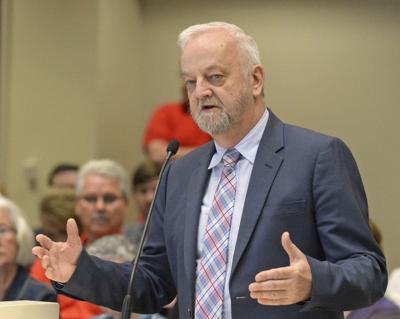The last time the East Baton Rouge Planning Commission tried to hire new staff, some of the applicants struggled just to read a map, parish planning director Frank Duke said Monday.
He appeared before a Metro Council committee considering potential changes to the Plan of Government, basically the local constitution. Before authorities consider shaking up how planning and development are handled, Duke said, it should look to correct the staffÔÇÖs noncompetitive salaries.
East Baton Rouge ranks in the bottom 1 percent nationally for planning salaries: An entry level job that would pay $42,000 a year in Shreveport offers only $29,000 in Baton Rouge, Duke said.
The nonprofit Center for Planning Excellence reached a similar conclusion when it presented the results of its study of the department last month. Duke, however, disagreed with the rest of their findings.
CPEX suggested the city-parish combine various planning, public works, permitting and other discrete offices under one roof. Duke said CPEX used incorrect data about his office and inappropriately compared East Baton Rouge to cities in other regions of the country. He urged committee members to disregard the advice so his already stretched-thin staff wouldnÔÇÖt have to take time to evaluate the proposal.
CPEX Board Chairman Cordell Haymon said the report wasnÔÇÖt meant to imply that the commission or Duke werenÔÇÖt doing a good job. Rather, CPEX noted that East Baton Rouge has too many single-purpose entities and could benefit from some streamlining, Haymon said.
Baton Rouge Area Chamber President Adam Knapp said itÔÇÖs ÔÇťdeplorableÔÇŁ that planning staff isnÔÇÖt paid more.
The committee took no decisive action. For one, they need to talk with their lawyers to figure out their options, council member and committee chairwoman Donna Collins-Lewis said. Furthermore, due to travel, illness and a family emergency, the committee lacked a quorum.
Collins-Lewis warned that after spending a year and a half parsing the plan of government, she doesnÔÇÖt intend for the committee to continue working into 2020.
Any changes to the plan of government must be ratified by popular vote. The Metro Council must officially call for such an election. The council would have to decide on ballot items by summer to qualify for the Nov. 16 election date, said council administrator Ashley Beck.
Beck noted that the committee has considered at least a dozen changes ranging from the makeup of the council to fire department organization to city-parish budgeting. The committee planned to reconvene at some point next month to begin hammering out specifics.


